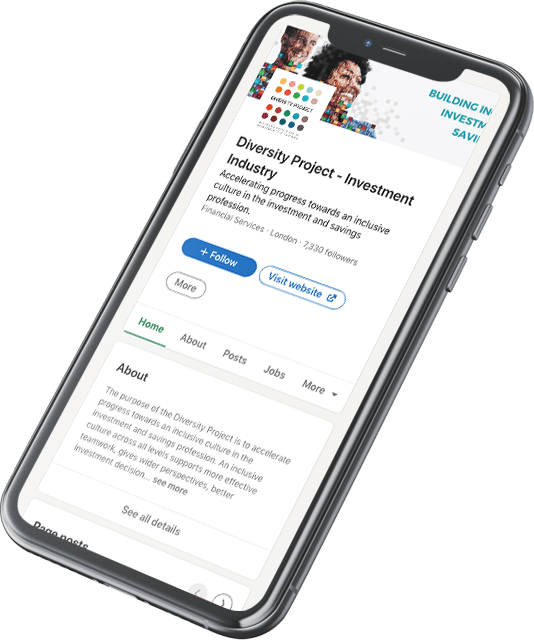Dr Louise Ashley never set out to become an expert and academic on social class. After completing a PhD on gender-based inequalities in five law firms within the City of London, it became obvious to her that social class was a pressing matter – both in law firms and in many other sectors besides.
This realisation also corresponded with more widespread interest and focus on issues around social class – particularly that of social mobility within the professions. As her research progressed, she increasingly directed her attention on the issue. Now a senior lecturer in organisation studies at Royal Holloway, University of London, she is a leading thinker and commentator on social class.
I have to confess I was a little apprehensive interviewing Dr Ashley. Having already interviewed two leading academics in the field (Dr Lee Elliot Major and Professor Sam Friedman), I was concerned there might not be much new ground to cover. I needn’t have worried. Dr Ashley’s sharp, eloquent and oftentimes witty responses took the conversation in interesting directions, forcing me to question some long-held beliefs. The title of her upcoming book should give you a sense of her matter-of-fact and forthright views. Keep an eye out for Highly discriminating: Why the City isn’t fair and diversity doesn’t work.
Can you give a brief overview of your views on social mobility and social class?
I would say that I’m quite critical about social mobility. Not the reality of it, and certainly not to suggest that fluidity and fairness are not good things; they are important things we should promote and facilitate. However, the application of the agenda has sometimes been quite regressive, and we have to be careful at both the societal and organisational level that attention to social mobility isn’t used to legitimate wider inequalities.
We need to think about what (and who) social mobility is for; we often associate social mobility with inequality and with addressing inequalities, but that’s a slight misreading because in its application social mobility is really about making sure that any inequalities – for example, relating to income and wealth – we have in society are generally considered fair. It is therefore not about removing inequalities, as such, but ensuring that they are seen as in some sense legitimate and justifiable.
To do that, social mobility effectively promotes a kind of meritocratic ideal. This is the notion that a fair society is one where everybody achieves their position in life on the basis of what we call achieved characteristics (e.g., education and effort) as opposed to ascribed characteristics (such as social class, or gender or ethnicity). The idea is that a mobile and meritocratic society on that basis would be fair, no matter whether it is highly unequal in terms of factors such as income and wealth – and realising this sort of ideal has become the goal for recent administrations, rhetorically at least. That might seem like a good thing, but one argument is that if current financial and professional elites can convince sufficient numbers of people that this meritocratic ideal is a reality, then this will ensure those inequalities persist – and that their interests are protected.
In addition, achieving that ideal is almost certainly impossible, and even if that were not the case, we could argue that meritocratic societies are not necessarily ‘fair,’ depending on what definition we prefer. Again, this is quite complex, but takes us on to whether we think fairness is defined by equal opportunity, which conforms with the meritocratic ideal, or whether we think we could or should think harder about equal outcomes – in other words, making sure that everybody has a more equal share of available rewards rather than concentrating wealth amongst the privileged few. I am in the latter camp.
At the organisational level, social mobility can be similarly problematic. Opening access is a good thing, but we have to be careful that those activities are not used by those same organisations to legitimate much wider inequalities and therefore paradoxically, to enable the current status quo.
Could you give an overview of the Bridge Group research results that helped launch the City of London’s socio-economic diversity taskforce?
Yes, of course. Although I do work with the Bridge Group, I wasn’t as closely involved in that particular project but I am happy to give an overview as the results are so instructive.
In that study, the Bridge Group worked with eight leading financial service firms in the City of London. The headline finding was that 90 per cent of senior leaders came from the most privileged socio-economic backgrounds. That compares to around 33-34 per cent of the UK population as a whole.
Most research into social mobility, including mine, tends to look at access. But what the Bridge Group has done, along with other researchers, is demonstrate that the advantages of class or background last well into your career and may well be amplified as people progress. The Diversity Project Charity also commissioned research on Socioeconomic Diversity.
A STUDY INTO THE BARRIERS AND HOW THEY CAN BE OVERCOME
Why do you think that social mobility and socio-economic diversity have been left behind within the diversity, equity and inclusion (DEI) debate?
There a few answers to this. One is simply that social class is not a protected characteristic.
However, there is a much wider set of issues at play. During the 1990s and into the 2000s, social class left the policy agenda. This was a quite deliberate political decision and in part relates to a focus on education in Tony Blair’s New Labour government, which was positioned as a means of moving towards a more meritocratic society; one that would eradicate issues around class, if they hadn’t been already.
As we know, education has not had that effect. For example, while we have seen the expansion of higher education, this has not meaningfully contributed to better rates of fluidity in our society. As this became evident, towards the end of the 2000s and early 2010s, class returned to the agenda. It was framed as concern with declining rates of social mobility.
The framing is really important, partly because it is slightly inaccurate. Politicians tend to frame this agenda in response to declining rates of social mobility across the board. However, the reality is that the UK has reasonably good fluidity towards the middle of society. The issue is that we have a very sticky floor and extremely tight closure at the top of society.
The issue is that we have a very sticky floor and extremely tight closure at the top of society.
On the positive side, there has been more attention to challenging these forms of social closure. Many organisations have social mobility programmes, which is good – they have become part of many firms’ diversity agendas and there is no doubt that they have provided really important and useful support to many young people.
However, if we apply these programmes in a wider context where we have steep inequalities of income and wealth, we are essentially fighting against the tide because it is unlikely that those hierarchies won’t be reflected in organisations as well. That is one reason why I argue we must be careful not to use these organisational interventions as sort of smokescreen for those wider inequalities, which organisations – especially in the City – actually help to create.
Could you give examples of organisational programmes aimed at improving social mobility?
Interventions can typically be divided into supply and demand.
Examples on the supply side include helping people from underrepresented groups gain access to occupations and professions. This could be through programmes that offer mentoring and training and soft skills, internships and work experience and so on. They are often offered by firms working with charitable organisations. They are really useful and pragmatic and can help a lot of people.
However, relying too heavily on the supply side risks replicating the deficit model of diversity; where the emphasis is on asking people who are ‘different’ to fit into existing cultures and organisations rather than the other way around. More recently therefore, organisations have been looking closely at the demand side. For example, they have been making adjustments to their recruitment and selection processes to reduce bias.
Should socioeconomic backgrounds be a protected characteristic?
In short, yes – social class should be a protected characteristic. However, one of the difficulties is class is notoriously slippery. It is a difficult concept to define. Different theoretical or conceptual tools will give you different results.
Social class is also somewhat subjective, and an individual’s status or position often changes during the course of a lifetime. It is a dynamic concept. These issues with definitions and then how to operationalise it within the law present a challenge in making it a protected characteristic. However, those factors are not insurmountable and protecting social class is important because legislation is the type of structural intervention we need; it is not a panacea, but it can drive quite important change.
What advice would you have for companies on data collection and analysis?
The key thing is simply to do it. We are getting more and better data on socioeconomic diversity in the labour force and within particular organisations. This helps drive the conversation and ultimately change.
However, it is important to remember that data is a tool. It’s not an outcome in and of itself. We cannot fall into the trap of collecting the data and then thinking the job has been done.
How can we overcome the bias in society towards the status quo?
Great question. One thing we don’t talk about within social mobility (or diversity in general) is that the status quo offers benefits to certain groups.
It is often in leaders’ interest to maintain things as they are. Therefore, although things like social mobility and diversity are framed by organisational leaders as win-win, often that is not quite true. Unless we understand this, it is very difficult to figure out why diversity does not always achieve its stated aims.
Status-quo bias applies to individuals who may look to protect their interests, either consciously or unconsciously. But it also applies to organisations. One of the fundamental things we know about organisations, particularly so-called elite professions but not only them, is that looking quite exclusive in terms of who they recruit and promote offers advantages, including an impression of status.
Such status is derived from a number of characteristics, one of which is where exclusivity creates an impression that available skills are scarce. In addition, occupations or job types that have the highest status tend to be quite closely associated with people with the highest social identities in our society that tends to be white, middle-class men. Once we accept this, we can see that there are strong incentives in favour of exclusion rather than inclusion. And that is one factor which helps us to understand why the diversity agenda has had such an incremental and slow effect.
One way of looking at this is to say that some organisations, including the financial and professional service firms I research, are subject to competing pressures – towards both inclusivity and exclusivity at once. I argue that in response they tend to do enough to secure an inclusive and meritocratic reputation, but not so much that they might damage their status – or their profits – which relies at least in part on exclusivity. This would take a while to fully explain but when we look at how diversity is operationalised, we can say that outcomes suggest many organisations manage to reach a balance somewhere between the two. This is true not just for social class, but for all diversity characteristics.
How does this effect the business case for diversity, equity and inclusion?
It is fundamentally contradictory to a business case for change which argues there are commercial advantages in diversification. That is not to say that a business case does not exist but when we understand it from the perspective I’ve just explained, we see that there are considerable commercial advantages in maintaining the status quo.
As I say, there is a kind of exclusivity/inclusivity tension which organisations are constantly balancing in their activities aimed at diversity. Related to that, while the diversity agenda suggests that the market alone can drive equality, in practice the market drives inequality a lot of the time.
How important do you think cognitive diversity is to organisational performance and to what degree does socio-economic diversity play a role in this?
I am absolutely sure that appointing people from diverse backgrounds does contribute to cognitive diversity. However, this idea that there is a positive relationship between diversity and organisational performance, which is sold quite heavily in a sort of consultancy and practitioner environment, looks a lot less certain in academic research.
One of the issues is that this relationship is very difficult to prove in any statistically valid way; it is highly contingent depending on a whole bunch of factors. Perhaps more importantly though, even if the business case does exist, which it probably does in certain circumstances, whether that business case can actually drive change is far from clear.
Let me explain. The business case works on the assumption that once managers are convinced that diversification will bring economic benefits, they will feel compelled to act. Yet decades of sociological research tell us that hiring and promotion do not work on the basis of rational economic decision-making. Instead, they work through things like tradition and custom, and habits. The business case is therefore based on a faulty economic logic. It also suggests we can drive change within the system, when in fact we probably need to change the system itself.
More muscular interventions are required to get over such institutional inertia, but diversity is a voluntary agenda. And a voluntary agenda, one based on a business case, isn’t sufficient to counter the powerful forces in favour of the status quo.
In the end it comes down to what we want. If we want to continue to prioritise profit maximisation we probably also need to accept that extremely incremental change in pursuit of equality and fairness (however defined) will be one consequence of that. If we want more meaningful change, genuinely more equitable organisations and societies, we would need to make much bigger changes – probably as big as adjusting our current model of capitalism.
We could argue that is not at all what current elites – who benefit the most from that system – actually want. So while this may seem cynical, from their perspective, as it offers an impression of change which protects and legitimates the current status quo, diversity’s failures might actually look like its biggest success.







